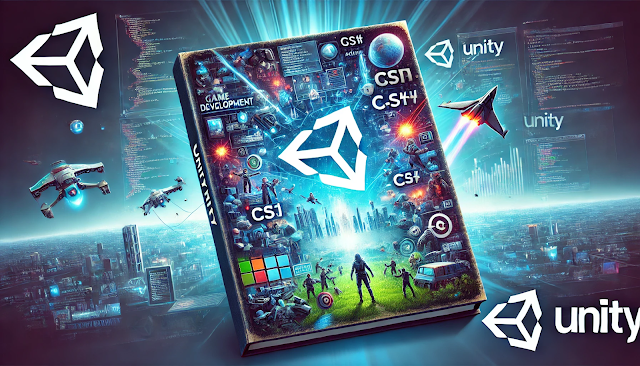What is Unity Game Development?
Unity 3D is a widely used game development platform that allows creators to build interactive and visually engaging games. It supports 2D, 3D, augmented reality (AR), and virtual reality (VR) development, making it a preferred choice for many. The platform provides a vast asset store, real-time rendering capabilities, and cross-platform compatibility, allowing games to run on multiple devices without extensive modifications.
By using Unity, games can be developed efficiently while maintaining high-quality graphics and smooth performance. The engine also supports scripting in C#, enabling customization and flexibility in game mechanics, physics, and AI.
To improve efficiency and enhance game quality, certain hacks and strategies can be applied. Below are five game development hacks that can help in optimizing workflow and achieving better results with Unity 3D.
1. Optimize Asset Management
Efficient asset management plays a significant role in game performance. Large assets can slow down rendering and cause memory overload, leading to lag or crashes.
Use Sprite Atlases – Combining multiple sprites into a single atlas reduces draw calls and improves rendering speed.
Compress Textures – Reducing texture size while maintaining quality helps in minimizing memory usage. Formats like ASTC, DXT, and PVRTC can be useful depending on the platform.
LOD (Level of Detail) Models – Using different model versions based on camera distance ensures that high-detail models are only rendered when necessary.
By organizing assets properly and using the right compression techniques, game performance can be enhanced significantly.
2. Improve Game Physics and Collision Detection
Unity provides various physics engines, but unnecessary calculations can slow down the game. Optimizing physics interactions helps in maintaining smooth gameplay.
Use Layer-Based Collision Detection – Unity allows the assignment of collision layers, ensuring that objects only interact with relevant elements instead of processing unnecessary calculations.
Reduce Rigidbody Usage – Rigidbodies should be used only when physics-based movement is required. For static objects, disabling unnecessary physics components can improve performance.
Optimize Raycasting – Instead of checking collisions frequently, limit raycasting calls and adjust their frequency based on necessity.
Fine-tuning physics settings can prevent performance issues and provide a seamless gaming experience.
3. Utilize Object Pooling for Performance Enhancement
Instantiating and destroying objects frequently can cause memory spikes, affecting frame rates. Object pooling minimizes this issue by reusing game objects instead of creating new ones repeatedly.
Preload Objects – Instead of spawning objects on demand, create and store them in a pool for instant retrieval.
Deactivate Instead of Destroying – Rather than destroying an object when it's no longer needed, deactivate it and reuse it later.
Manage Active Objects – Set a limit on the number of active objects to prevent unnecessary performance degradation.
Object pooling reduces processing overhead, resulting in smoother and more stable gameplay.
4. Use Efficient Scripting Practices
Code optimization is an essential part of game development, as inefficient scripts can lead to slow performance. Applying best coding practices ensures that scripts run efficiently.
Avoid Expensive Operations in Update Methods – Update functions run every frame, so limiting costly calculations in them prevents unnecessary processing.
Cache Component References – Instead of calling GetComponent<>() frequently, store component references in variables to reduce overhead.
Use Coroutines for Timed Events – Coroutines allow the execution of functions over multiple frames, preventing frame drops caused by heavy operations.
Writing optimized scripts not only improves game performance but also makes debugging and maintenance easier.
5. Optimize UI for Smooth Performance
A well-optimized user interface enhances the gaming experience, preventing unnecessary delays and ensuring smooth navigation.
Minimize Canvas Updates – UI elements under the same canvas should be updated only when required. Frequent updates lead to performance drops.
Use Object Pooling for UI Elements – Reusing UI components, such as buttons or pop-ups, prevents lag during UI transitions.
Limit Overdraw in UI Rendering – Reducing the number of overlapping transparent UI elements helps in optimizing rendering performance.
By streamlining UI elements and animations, the overall responsiveness of the game can be improved.
Malgo – Leading Unity Game Development Provider
Malgo specializes in Unity game development, offering high-quality solutions for interactive and engaging gaming experiences. With a strong focus on efficiency and performance, Malgo implements advanced strategies to ensure smooth gameplay, optimized graphics, and seamless cross-platform compatibility. From concept to execution, Malgo delivers top-tier Unity-based games that captivate players and run efficiently across various devices.
Want to level up your game development? Master Unity 3D game development with Malgo and bring your vision to life!









